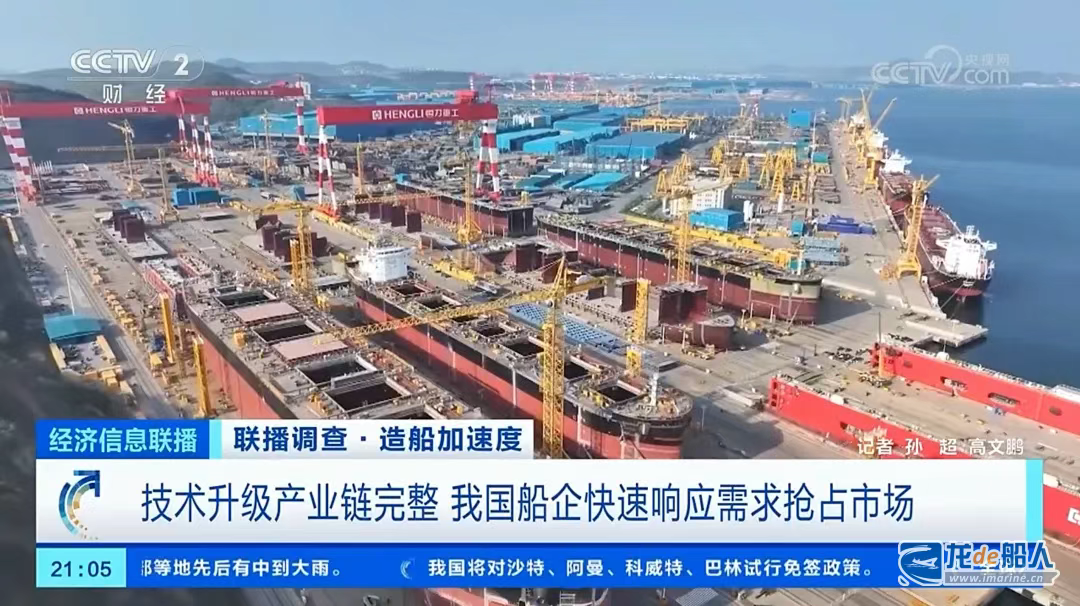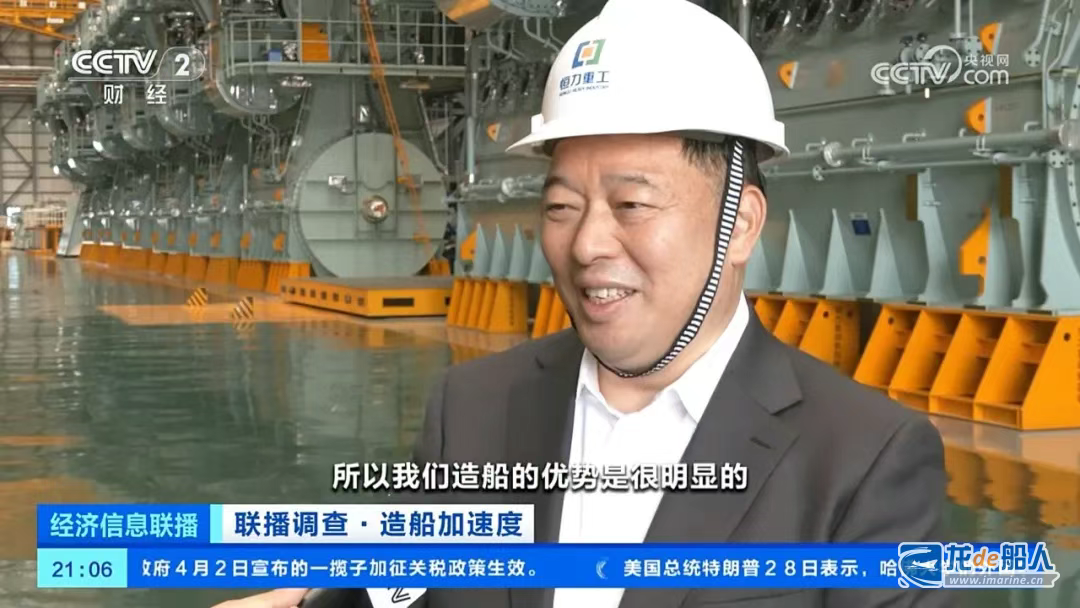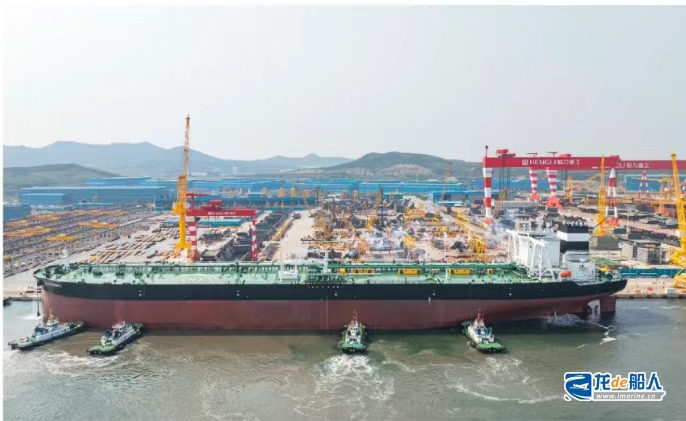On the evening of May 29, Hengli Heavy Industries appeared on CCTV Finance Channel, providing in-depth coverage of the strong market resilience and competitiveness demonstrated by China’s shipbuilding industry amid the complex global trade situation. Chen Jianhua, Chairman and President of Hengli Group, was interviewed.

The latest data released by the China Shipbuilding Industry Association shows that from January to April 2025, China’s shipbuilding completion volume, new orders and backlog orders will reach 15.32 million deadweight tons, 30.69 million deadweight tons and 229.78 million deadweight tons, accounting for 49.9%, 67.6% and 64.3% of the world market share, respectively. The main shipbuilding indicators remain the world’s first. Industry insiders pointed out that the current global shipyard production capacity continues to be in a tight balance, the demand for periodic renewal of the existing fleet has been released, and the shipbuilding industry’s boom cycle will continue.

According to reports, Hengli Heavy Industry has a backlog of approximately 170 vessels, primarily from European orders, with orders already booked through 2029. The two newly constructed docks are scheduled to begin operations by the end of next month.
Walking into the design department of Hengli Heavy Industries, computer screens display a model of a dual-fuel tank for a 24,000 TEU container ship. The person in charge told reporters that this tank can accommodate both LNG and ammonia fuel, with a capacity of 13,000 cubic meters, making it the largest C-type fuel tank in the world. It was specially designed to meet the latest requirements of European shipowners.

Chen Jianhua, Chairman and President of Hengli Group, said: “One is design, and the second is that we need to improve the supporting facilities for industrial workers. When the supporting facilities are improved, the efficiency will be improved.”
In order to further improve industrial support, Hengli began producing core components for marine engines in September last year. Currently, it can produce 180 marine engines per year, which are compatible with four types of fuel: LNG, methanol, ammonia, and LPG.
Chen Jianhua pointed out, “The engine is like a heart. With a good engine, shipbuilding can be done well. Our supporting capabilities have now reached 50-60%, which has improved efficiency and reduced costs. Therefore, our advantages in shipbuilding are very obvious.”

Since the restart of the shipbuilding industry, Hengli Heavy Industries, backed by Hengli Group, has developed rapidly. It has not only taken on new ship orders in various fields, but also ushered in many breakthroughs in the shipbuilding market.
On May 29, the first 306,000 DWT VLCC independently developed and designed by Hengli Heavy Industries completed all sea trials, entering the final stage of delivery. The successful sea trials of the first VLCC mark a key step forward for Hengli Heavy Industries in the field of ultra-large ship research, development, and construction.
According to incomplete statistics, Hengli Heavy Industries currently owns six VLCCs, all of which are from its parent company, Hengli Group. In 2023, Hengli Heavy Industries received two 306,000 DWT VLCCs from Hengli Group, marking Hengli Heavy Industries’ official entry into the VLCC field. In 2024, Hengli Group placed an additional order for four VLCCs of the same type. All six new vessels will be delivered by 2027.
It is worth noting that Hengli Heavy Industries’ first two “self-built” VLCCs have been successfully resold to Dynacom Tankers, a tanker shipping company owned by Greek shipowner George Procopiou. Each VLCC was sold for as much as US$122 million, marking Dynacom Tankers’ first entry into the VLCC newbuilding resale market in nearly a decade.
In addition to the first VLCC reaching an important construction milestone, on April 18, 2024, Hengli Heavy Industries successfully delivered its first 61,000 DWT bulk carrier; on October 23, the first 82,000 DWT bulk carrier was delivered.
Hengli Heavy Industries said that the company will continue to enhance its design, development, production and construction capabilities for high-end, intelligent and green ships in the future, and make greater contributions to accelerating the construction of a world-class shipbuilding company and promoting high-quality development of the shipbuilding industry.


